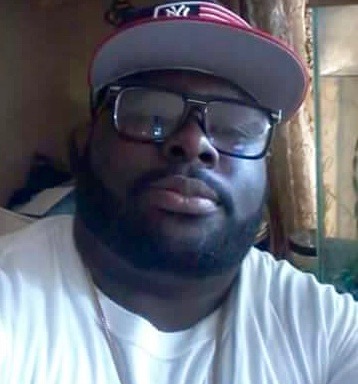 Kelvin Bradley
Although she could have driven away without incident, Webb sped down a hill through a crowd of people, narrowly missing several children. The crowd then managed to get in front of Webb’s car and tried to pull her from the vehicle. Webb slammed the car into reverse and backed up, sideswiping several cars parked along the street. On the way, Webb pinned a bystander, Tina Pullins, between her car and a parked truck and ran over 26-year-old Kelvin Bradley’s foot.
Webb put the car in drive and accelerated toward a crowd of panicked people. Bradley, a licensed security guard with no prior criminal record, drew his handgun and fired three shots. One struck Webb in the head, killing her. The car rolled to a stop and no more bystanders were hurt.
A week later, Bradley voluntarily surrendered to Atlanta police. Bradley’s lawyer instructed the police not to question Bradley, as he had invoked his right not to speak to the police. The officers nevertheless questioned Bradley, who admitted he shot Webb, but said he had acted in the heat of the moment and that he wished to become a police officer himself.
Bradley was charged with murder, aggravated assault with a deadly weapon, and possession of a firearm during the commission of a felony. He went to trial in Fulton County Superior Court in June 2012. The prosecutor, Assistant District Attorney Adriane Love, presented witnesses who heard the shots and saw Webb’s car come to a halt. Several witnesses close to the shooting declined to identify Bradley as the shooter, while others gave a description of a man who resembled him.
Before trial, the court ruled that Bradley’s statement to detectives could not be used as evidence because the officers had questioned Bradley after he had asserted his right not to speak with them. Despite that ruling, Love attempted to elicit testimony from police officers that when Bradley surrendered, he never denied firing the shots.
Bradley’s defense lawyer attempted to cast blame on Hilton—Webb’s boyfriend—by noting that police questioned him after the shooting and found gunshot residue on his hands, and that he had been convicted six months earlier for shooting at Webb. But Hilton had distinctive dreadlocks, and no one at the scene identified him as the shooter.
In closing argument, Love argued that by turning himself into police after discovering there was a warrant for his arrest, Bradley was admitting his guilt. Love also argued that Bradley’s silence both before and after arrest should be used as evidence of his guilt. The jury should convict, she argued, because he failed to come forward and tell police what he knew.
On June 22, 2012, the jury convicted Bradley of aggravated assault with a deadly weapon, acquitted him of murder, and failed to reach a verdict on the charge of illegal use of a weapon during the commission of a felony. He was sentenced to 20 years in prison, the statutory maximum.
Bradley retained a new lawyer, Andrew Fleischman, who filed a motion for a new trial. He argued that Bradley’s trial lawyer was ineffective because he had failed to request a hearing to argue that Bradley had acted in defense of others, failed to request that the jury be instructed that they could acquit if he acted in defense of others, and failed to object when Love improperly commented on Bradley’s pre-arrest silence.
In 2016, Fulton County Superior Court Judge Henry Newkirk granted Bradley a new trial. The judge ruled that Bradley’s trial lawyer had provided an inadequate legal defense by failing to object when Love argued that the jury should convict because Bradley never spoke to police. Since Bradley had made a statement, this argument was both legally improper and factually false, the judge ruled.
The judge also ruled that Bradley’s defense attorney had provided an inadequate legal defense by not requesting a pre-trial ruling that Bradley had acted in self-defense—a motion the judge said he would have granted.
Bradley was released on bond pending a retrial. Fleischman then filed a motion asking that Bradley be found immune from prosecution because he was acting in defense of others, citing a Georgia statute that holds a person acting in defense of others immune from even being charged with the crime.
On April 5, 2017, Judge Newkirk granted the motion and dismissed the remaining charge pending against Bradley. “This Court finds that Bradley’s actions were justified under Georgia law,” the judge declared. “Neither he nor the attendees at the funeral had any duty to flee, as the State suggested, nor has the State shown any compelling evidence that Bradley could have escaped without abandoning Tina Pullins. The use of deadly force was authorized because (Webb) was in the process of committing a number of forcible felonies against many innocent bystanders, including children.”
“Bradley could not have known if (Webb) was going to turn around to strike again, or whether she would hit more people in the process of escaping the scene of the crime,” the judge said.
The Fulton County District Attorney’s Office elected not to file a notice of appeal by May 5, 2017, meaning that the judge’s ruling was final.
– Maurice Possley
|